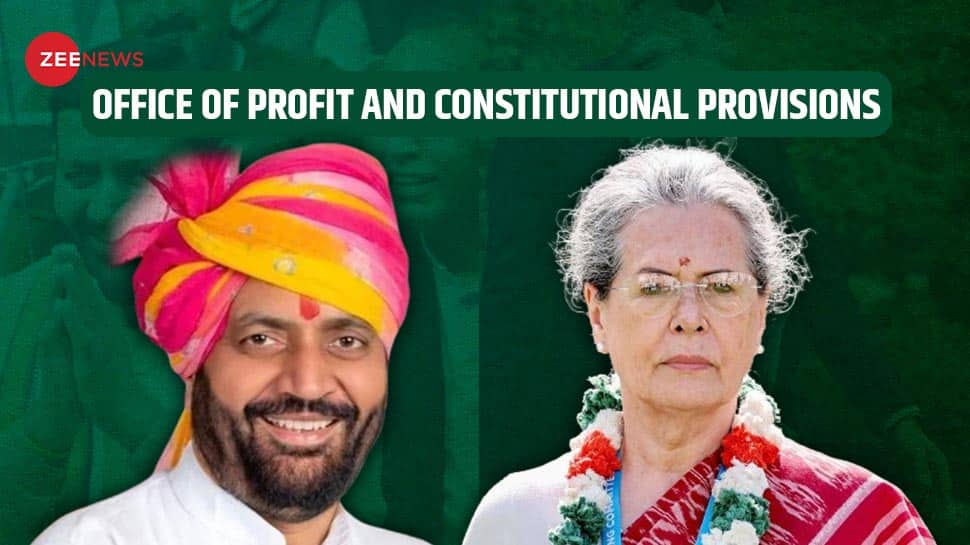Chandigarh: The Punjab and Haryana High Court has set the legal stage for a potentially significant constitutional debate, issuing notices to the Centre, the Haryana government, and the Election Commission regarding a plea challenging the appointment of Nayab Singh Saini as the chief minister of Haryana. A division bench of Acting Chief Justice G S Sandhawalia and Justice Lapita Banerji sought their response in the matter and fixed April 30 as the next date of hearing in the case.
Advocate Jagmohan Singh Bhatti, who filed the Public Interest Litigation (PIL), alleges that the newly formed Haryana government led by Saini is “illegal and a fraud on democracy.” Speaking to reporters, Bhatti outlined several grounds for the alleged illegality, including the increase in the Haryana assembly’s member count beyond the constitutionally permissible limit of 90 due to Saini’s appointment. He also questioned the legitimacy of the five new cabinet ministers appointed alongside Saini.
One significant contention raised by Bhatti is the suspicion that Saini was holding an “office of profit” at the time of taking oath as chief minister, given his status as a sitting Member of Parliament from the Kurukshetra Lok Sabha seat. Bhatti argues that this contravenes constitutional provisions and the Representation of the People Act, 1951.
Responding to the plea, the high court issued notices to the Centre, the Haryana government, the Election Commission, and the Haryana Assembly Speaker. Nayab Singh Saini assumed office as the new chief minister last week, following the unexpected resignation of Manohar Lal Khattar and his cabinet ministers.
Historical Precedent: Sonia Gandhi’s Resignation
This current controversy echoes a historical event when Congress party chief Sonia Gandhi relinquished her Lok Sabha seat in 2006 due to similar concerns over holding an office of profit. Sonia Gandhi was accused of holding an office of profit by being a Member of Parliament as well as the Chairperson of the National Advisory Council, the latter being a post with the rank of a Cabinet minister.
The controversy arose due to an oversight by Congress’ political managers who forgot to seek exemption from the Office of Profit Act for the post of the Chairman, NAC. The NAC was created to advise the then UPA government headed by Prime Minister Manmohan Singh. That Gandhi too held an office of profit came to light after the Congress had stepped up a campaign against SP Rajya Sabha member Jaya Bachchan, who also held the post of the Chairperson of the Uttar Pradesh Film Development Corporation. Sonia Gandhi consequently resigned from her Lok Sabha membership on March 23, 2006, even as the Election Commission was considering a petition against her.
Understanding The Office Of Profit
The concept of an office of profit, originating from English law, aims to ensure the independence of legislative bodies and maintain the division of governmental powers. This principle is fundamental to the Indian Constitution.
Constitutional Provisions
While the Indian Constitution does not explicitly define the term, articles 191(1) and 102(1) impose restrictions on legislators at both central and state levels regarding accepting government positions. According to Article 102 (1)(a) of the Constitution, a person shall be disqualified as MP for holding any office of profit under the government of India or the government of any state, other than an office declared by Parliament by law not to disqualify its holder.
Similarly, Article 191(1)(a) applies to MLAs, disqualifying them if found holding an office of profit, subject to exemptions and presidential review.
Exemptions And Safeguards
Ministers are exempted from these disqualification rules, and if a legislator’s position cannot be legally disqualified, the rule of office of profit does not apply.
NCT Act, 1991
Section 151(1)(a) of the Government of National Capital Territory of Delhi Act, 1991, provides for the disqualification of MLAs holding an office of profit, with similar safeguards and exemptions.
Judicial Interpretation
The Guru Gobind Basu vs. Sankari Prasad Ghosal & others case underscores the importance of various factors in determining an office of profit, including appointing authority, payment source, and accrued authority.

